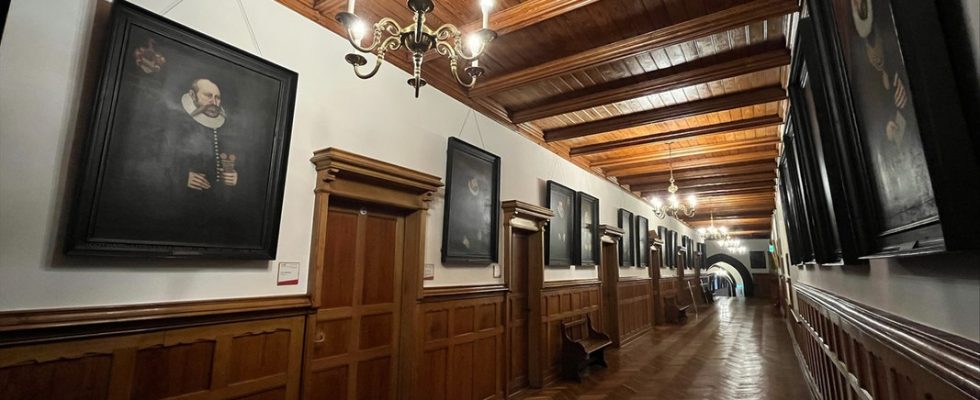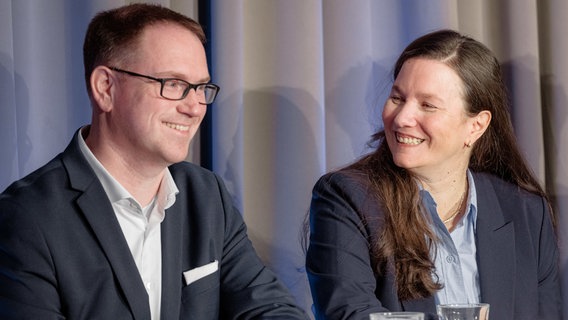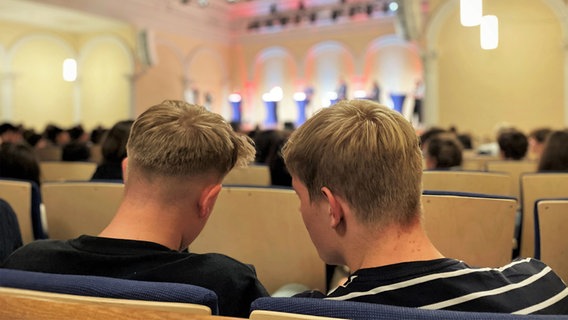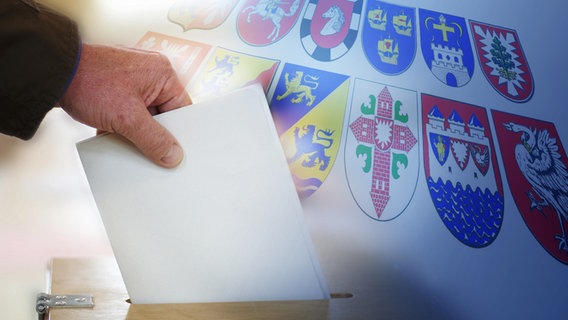As of: November 26, 2023 12:00 a.m
The people of Lübeck are electing their future mayor today. The two candidates are entering the race with numerous campaign promises. In reality, the mayors’ power lies somewhere else entirely.
The times when “Lübeck mayor” was an office of world fame are still present in the town hall. Large portraits of former incumbents hang in the hallways. During the Hanseatic League they were even able to depose kings and commanded one of the most powerful armies in the north. Until 1937, the heads of government of the city-state of Lübeck were roughly comparable to today’s Prime Minister.
Schleswig-Holstein’s mayors have particularly little to say
Lübeck’s mayors used to have great power, but things are different today.
Today, a Lübeck mayor has just as much say as heads of administration in other independent cities in Schleswig-Holstein, with exceptions when it comes to monument protection. In addition: “Here, mayors have much less authority than in most other federal states,” says Michael Ruck, emeritus professor of political science at the University of Flensburg.
Candidates still make big campaign promises
During the election campaign, the candidates still make strong promises. CDU candidate Melanie Puschaddel-Freitag, for example, wants to ensure that there are fewer parallel construction sites on Lübeck’s streets. She also wants to run more buses. Opposing candidate Jan Lindenau, who is running for the SPD and Free Voters, also wants to achieve this. He is also committed to the introduction of an S-Bahn.
Politicians decide – mayor executes
However, if elected, the candidates cannot decide for themselves whether the election promises will become reality. Ultimately, it is the citizens who decide on additional buses or the relocation of construction sites. Mayors implement these decisions. The introduction of an S-Bahn is essentially a matter for the state. “Expectations are raised that cannot be fulfilled from the outset,” says Professor Ruck. The candidates are in a delicate situation. Because despite the few powers they have, they would have to somehow distinguish themselves from each other.
Further information
Mayors have to find majorities
In the past, the party that provided Lübeck’s mayor often dominated politics in the citizenry. However, there are currently seven factions there. “It has become increasingly difficult for Lübeck’s mayors to get majorities for their projects,” says Harald Denckmann. He has been reporting on civic meetings for several local media outlets for 30 years. “Today mayors have to make compromises more than before.”
Mayors’ power is hidden
On paper, the citizens have the power to make decisions. But a mayor also has leeway. “He can be a little more or less committed to implementation,” says political scientist Ruck. And a mayor can also use his prominent position in the city. “He or she can influence decision-making processes through ties by communicating externally in an appropriate form, for example to associations or the public.” In this way he can create a certain climate of opinion in the city and thus promote projects that are important to him.
Mayor: Like CEO of a major corporation
A mayor has a lot of responsibility. In Lübeck he manages and organizes a budget worth billions and is the boss of several thousand employees, sits on the supervisory boards of municipal companies and heads foundations. According to political scientist Ruck, he can also influence this and take control of certain topics. “Mayors have the opportunity to make it clear about the organization of the administration: this is the central task.” In Kiel, for example, Mayor Ulf Kampf (SPD) made the topic of the economy a top priority and thereby helped the area gain greater weight in local politics.
Expert: The personality of the candidates is crucial
Leading employees, communicating skillfully, organizing majorities: political scientist Ruck sees personality as a decisive criterion in a mayoral election. And both candidates set quite different accents. Lindenau interprets the role of the mayor rather self-confidently: “As mayor, I lead the city’s administration according to the goals and principles that the citizens of Lübeck decide on.” The mayor’s office, on the other hand, understands Puschaddel-Friday more cautiously: “It’s important to me […] As mayor, carry out the decisions of the citizens as they have decided.”
Further information





